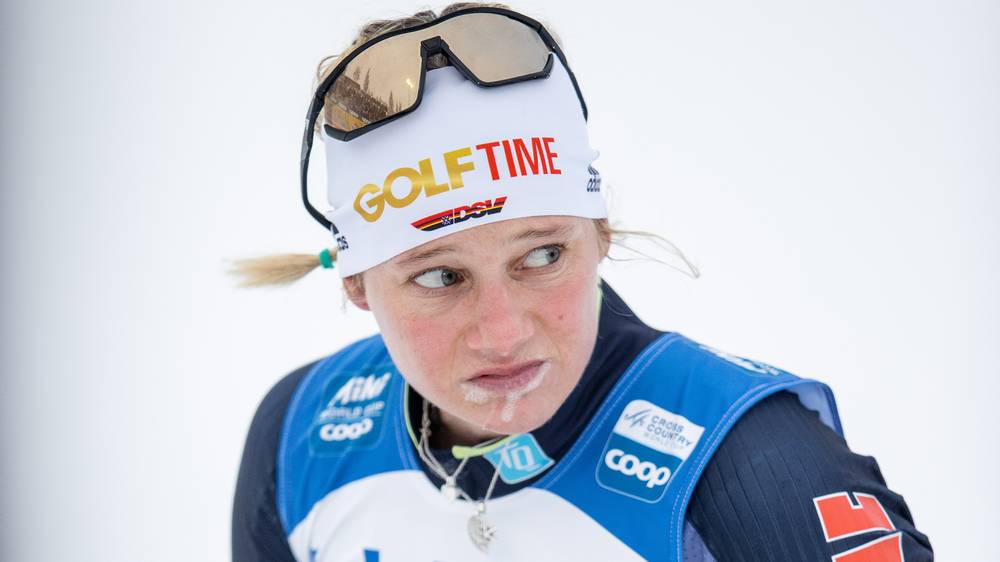The federation writes in a press release that Carl tested positive for the drug clenbuterol during a test that was taken out of competition in Andermatt, Switzerland. She was then part of the German military national team.
It is the same substance for which cycling star Alberto Contador was banned for two years in 2012. He was also stripped of his overall victory in the 2010 Tour de France and his Giro d’Italia victory in 2011.
The substance is said to have been in a medicine Carl was prescribed by a doctor.
– I was sick, had severe coughing fits and took the medication on doctor’s orders. I was not aware that it contained a banned substance. I truly hope that the circumstances will be understood and assessed fairly, Carl says in a statement.
– A nightmare
Clenbuterol is listed as a prohibited anabolic substance by the World Anti-Doping Agency (WADA). The substance may have an effect on increasing muscle mass and endurance.
– She probably acted in good faith. She trusted the doctor’s recommendation for medicine. Most athletes do that. At the same time, the athlete has a personal responsibility to check whether the medicine is affected by the doping regulations, says NRK’s cross-country expert Torgeir Bjørn.
– What is it like for a performer to end up in a situation like that?
– What is it like for a performer to end up in a situation like that?
– It’s a nightmare to simply be accused of doping, Bjørn sums up.
Carl won Olympic gold with Katharina Hennig in the team sprint at the 2022 Olympics. At the World Championships in Trondheim this winter, she was part of the German relay team that won bronze.
Victoria Carl pictured here during the World Championships in Trondheim this winter.
– Similarities with the Johaug case
– This is another boring case for cross-country skiing. Victoria Carl is an important profile in international cross-country skiing. Here she has a good chance of a blister that should have been avoided, says NRK’s cross-country skiing commentator Jann Post and continues:
– As in the Johaug case, the explanation is that a doctor made a huge mistake. If she is believed in this, she can still be punished. If there is anything we have learned from the Johaug case, it is that the athlete himself is responsible for what goes into his own body, says Post.
Therese Johaug was banned for doping for 18 months in 2017 after the banned substance clostebol was found in a doping test.
The Norwegian ski star’s explanation was that she had been given a cream by the national team doctor to treat a sunburn on her lips – and that she was not told that the cream contained clostebol.
– This case has so many similarities to the Johaug case that I am a little surprised that Carl falls into that trap and that the German federation and Carl blame the doctor exclusively, says TV 2’s cross-country expert Petter Skinstad.
– Carl, like any athlete, is 100 percent responsible for what he puts into his own body. I recommend the German federation and Carl to be humble and take responsibility for what has happened. Johaug probably got 18 months instead of 13 for not being aware of his responsibility, Skinstad reflects.
– Relying on a medical recommendation
The German military medical team claims that the athlete is not to blame for the positive test and that the doctor who administered the drug failed to mention the presence of clenbuterol.
The person concerned also did not apply for a medical exemption for Carl.
The German Ski Federation writes that in their opinion it is not the athlete’s fault that she has tested positive.
– The German Ski Association supports Victoria Carl in this situation. The athlete has said everything correctly, has always complied with the rules in the past, and in this case relied on a medical recommendation, the association writes.
Germany’s anti-doping agency NADA is now investigating the matter.
– We stand for clean sport, but also for justice and accountability, says board member Stefan Schwarzbach.
– Victoria Carl is currently facing possible consequences for which she is not medically responsible. In our opinion, a ban, especially in view of the upcoming Olympic Games, would be neither fair nor proportionate, he adds.

